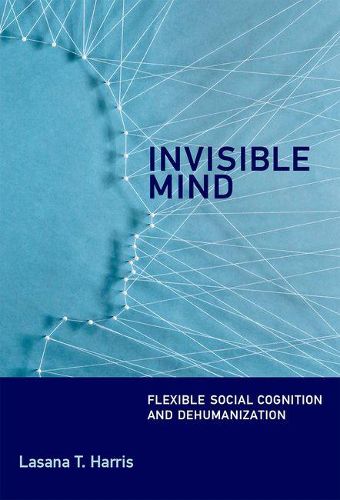Readings Newsletter
Become a Readings Member to make your shopping experience even easier.
Sign in or sign up for free!
You’re not far away from qualifying for FREE standard shipping within Australia
You’ve qualified for FREE standard shipping within Australia
The cart is loading…






An interdisciplinary view of the evolution and consequences of flexible social cognition-the capacity to withhold the inference of mental states to other people.
In Invisible Mind, Lasana Harris takes a social neuroscience approach to explaining the worst of human behavior. How can a person take part in racially motivated violence and then tenderly cradle a baby or lovingly pet a puppy? Harris argues that our social cognition-the ability to infer the mental states of another agent-is flexible. That is, we can either engage or withhold social cognition. If we withhold social cognition, we dehumanize the other person. Integrating theory from a range of disciplines-social, developmental, and cognitive psychology, evolutionary anthropology, philosophy, economics, and law-with neuroscience data, Harris explores how and why we engage or withhold social cognition. He examines research in these different disciplines and describes biological processes that underlie flexible social cognition, including brain, genetic, hormonal, and physiological mechanisms.
After laying out the philosophical and theoretical terrain, Harris explores examples of social cognitive ability in nonhumans and explains the evolutionary staying power of this trait. He addresses two motives for social cognition-prediction and explanation-and reviews cases of anthropomorphism (extending social cognition to entities without mental states) and dehumanization (withholding it from people with mental states). He discusses the relation of social cognition to the human/nonhuman distinction and to the evolution of sociality. He considers the importance of social context and, finally, he speculates about the implications of flexible social cognition in such arenas for human interaction as athletic competition and international disputes.
$9.00 standard shipping within Australia
FREE standard shipping within Australia for orders over $100.00
Express & International shipping calculated at checkout
An interdisciplinary view of the evolution and consequences of flexible social cognition-the capacity to withhold the inference of mental states to other people.
In Invisible Mind, Lasana Harris takes a social neuroscience approach to explaining the worst of human behavior. How can a person take part in racially motivated violence and then tenderly cradle a baby or lovingly pet a puppy? Harris argues that our social cognition-the ability to infer the mental states of another agent-is flexible. That is, we can either engage or withhold social cognition. If we withhold social cognition, we dehumanize the other person. Integrating theory from a range of disciplines-social, developmental, and cognitive psychology, evolutionary anthropology, philosophy, economics, and law-with neuroscience data, Harris explores how and why we engage or withhold social cognition. He examines research in these different disciplines and describes biological processes that underlie flexible social cognition, including brain, genetic, hormonal, and physiological mechanisms.
After laying out the philosophical and theoretical terrain, Harris explores examples of social cognitive ability in nonhumans and explains the evolutionary staying power of this trait. He addresses two motives for social cognition-prediction and explanation-and reviews cases of anthropomorphism (extending social cognition to entities without mental states) and dehumanization (withholding it from people with mental states). He discusses the relation of social cognition to the human/nonhuman distinction and to the evolution of sociality. He considers the importance of social context and, finally, he speculates about the implications of flexible social cognition in such arenas for human interaction as athletic competition and international disputes.